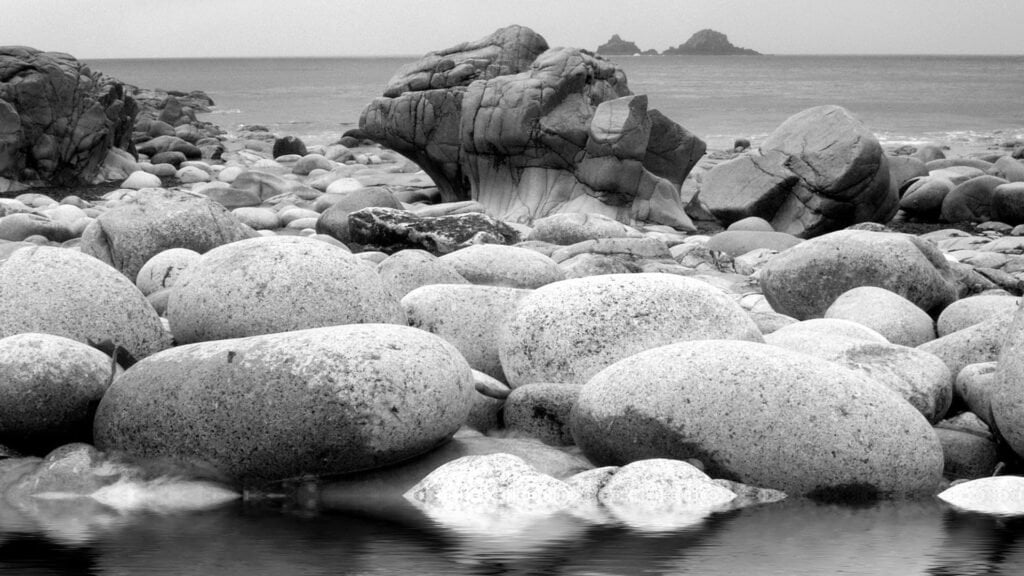This article was written back in the 1990s by the late great and sometimes controversial Cornishman Craig Weatherill. It is still relevant today and I wonder what Craig would make of the TV programmes on Cornwall being presented by non Cornish people.
Some presenters are being very elitist featuring lots of well to do incomers and not very many Cornish.
This does not apply to the progamme with Simon Reeve which showed the economic difficulties within Cornwall. Or the wonderful BBC2 The Fishing life based in Cornwall showing how tough a life it can be.
Of course the true beauty of Cornwall is always shown in all the programmes.

For ages now (to the intense irritation of some and the delight of many), I’ve been sounding off against the invention of Cornish pseudo-culture, especially by those with a vested interest in tourism but I’m sorry to say that among the guilty parties are some Cornish people. Their introduction of tartans and kilts, invented forms of language and even the concept of the Gorsedd itself – none of which were EVER part of Cornwall’s genuine culture and tradition – are just part of a wide problem and why, oh why, do some Cornish language buffs insist on inventing Cornish names for places which never had them? Two of the daftest are ABERFAL (for Falmouth) and ABER-PLYM (for Plymouth). Neither of these places ever had Cornish names to anyone’s knowledge and it’s no good trying to pretend that they did. And why the choice of the word aber? This occurs in the 10th century Cornish vocabulary and is cited as meaning “confluence, whirlpool, gulf’, but not specifically “river-mouth”, which is what the inventionists are trying to convey. The word dropped out of use after the 10th century, never occurring again in any known text. More to the point, it isn’t found in any Cornish place-names, either. Aber, in the sense of “river-mouth”, is common in Wales (Aberystwyth, Abergavenny. etc.) and also occurs in Brittany (l’Aberwrac’h), but nowhere is it found in Cornwall. To justify a Cornish use for no other reason than a supposed analogy with these and then to use it in made-up names is not only wrong, but ill-informed and historically misleading. So why do it? Curiously, there doesn’t seem to be a Cornish word specifical-ly meaning “river-mouth, estuary-. Instead, two other words were commonly used: loe and hayle (the most common spellings). Loe, from the same Scandinavian (not Celtic) origin as the Scottish loch and the Irish lough, is often given the meaning “pool, lake, inlet”. However, almost every occurrence of the word in place names, where it is restricted to Cornwall’s south coast, is specifically associated with the characteristic deep water drowned valleys, or “rias”, even where geologically blocked from the sea by shingle bars like Loe Pool and Falmouth’s Swanpool (the name Prislow occurs at its head). The word does not mean an inland lake or pool, lyn/lidn being the most usual word for these, so it would seem that the best trans-lation of loe is “ria”. On the other hand, and with a single exception, hayle place names are confined to Scilly and Cornwall’s north coast. Here, river mouths are appreciably shallower than the south coast rias and dry out at low water to reveal large expanses of sand and mud. Hayle, then, does not mean “estuary” but “saltings, tidal flats”. The one exception to the north coast locations is Cotehele, on a tidal reach a long way up the Tamar from the sea, in a place where the river dries out at low water to an expanse of mud and reed. Here again, “tidal flats” is a far better translation than “estuary”. Certainly, the place-name Mousehole doesn’t contain hayle – its south coast location is at odds with the rest and there are no tidal flats there. In fact, there is no Cornish derivation of this name – it is, purely and simply, English. In fact, the word hayle is directly related to hale (as in Penhale, Chyenhal, etc.), the real meaning of which is “low-lying marshy moor”, the type in which willow-carr commonly grows – and so to a further related word, helagan (collective plural helack), So back to the invented names. The haven of Falmouth has carried that name since at least the 13th century. The settlement on the site of the present town was Smythwyck (Smithick) in the 14th century – another English name – with Falmouth first occurring as a settlement name there in the 16th century. It did not have a Cornish name and neither did Plymouth. The modern inventions don’t stop there. Recently, Torpoint has been rendered as PENTOR which is, frankly, ridiculous. The name is, again, English; “point” being added to a shortened form of Old English steorht, “tail, promontory”. No Cornish name for the place is known. I’ve even seen PEN KERNOW for Cape Cornwall, which is really going from the sublime to the gorblimy. Cape Cornwall is a chartmaker’s name, only dating back to around 1680. Before that, the headland had a perfectly good. Cornish name, Kilgooth East, “goose-back of St. Just”, which describes its shape exactly. So why not use that? Close by is another chartmaker’s name: The Brisons.

All sorts of totally unconvincing attempts have been made to claim this is Cornish, but it isn’t. In fact, it is the French brisant, “reef’ and, as these great rocks resemble General de Gaulle in his bath, French is pretty apt! Here, though, no Cornish name is known. The Lizard is almost certainly not a Cornish name. Attempts to explain it as the Cornish for “court in a high place” makes neither topographical nor historical sense: Where in this level landscape is the “high place”, and where is the “court”? It is far more likely to be, like The Brisons, a French seafarers’ name, lesart, “lizard”, from the likeness of the long, flat-topped promontory to the reptile’s tail from the mariner’s point of view and supported by such early spellings as Lyzart and Lisart. Perhaps the most high-profile and regrettable of the place-name inventor’s work is the grotesque KAMMBRONN, to represent Camborne, and, sadly, appearing on roadsigns at the approaches to the town. The authorities, who didn’t know any better, were persuaded (by a Londoner!) that this was “correct”. It isn’t, and for two good reasons. Firstly, there is no historic precedent for this radical, computer-generated and Breton influenced spelling. NONE of the recorded names of the town, going right back to the 12th century, include an initial K, a double M or a double N. ALL include an initial C, a single M and a single N. In contrast, the forms used in Unified Cornish (CAMBRON) and Modern Cornish (CAMBURN) are both correct – the first being found in medieval records and the latter, which also reflects its traditional pronunciation, in Late Cornish texts. The second mistake of the inventor is to assume that Camborne means “crooked hill”, for this oft-cited translation is far from certain. There is a word cambern, meaning “dog-leg” which could refer to a geographical feature, a road, stream or valley, which might be the derivation of the name but further doubt is cast by the 1182 spelling Camberon, suggesting an early three-syllable word. In truth, the meaning of the name isn’t known and, in the light of this uncertainty, and the total lack of historical precedent, the startling KAMMBRONN should be unreservedly kicked out and replaced by either CAMBRON or CAMBURN. So, come on, you language buffs, don’t invent Cornish place names where they’ve never existed, especially using words which don’t exist as Cornish place-name elements; and don’t invent new spellings based on little more than assumption and which fly in the face of historical precedent. To do so, is, quite simply, to produce a false heritage and Cornwall already has far more of that than it needs.